DRC: How cassava flour changed a community’s future
In the village of Kuakua, Kongo Central, the production of cassava flour goes far beyond an economic activity; from allowing them to send their children to school, to helping them escape rape and sexual exploitation, what may seem like a mere ingredient is the base for these women’s empowerment.
Last year, in November 2022, UN Women visited the village of Kuakua, in Kongo Central, to better understand the work that Agrikcom, a beneficiary of the Women Economic Empowerment (WEE) programme, was doing in the territory. Now, in June 2023, the team had the chance to talk with these women again, follow the production process of their cassava flour, and learn how their lives have changed thanks to economic and social empowerment.
Date:
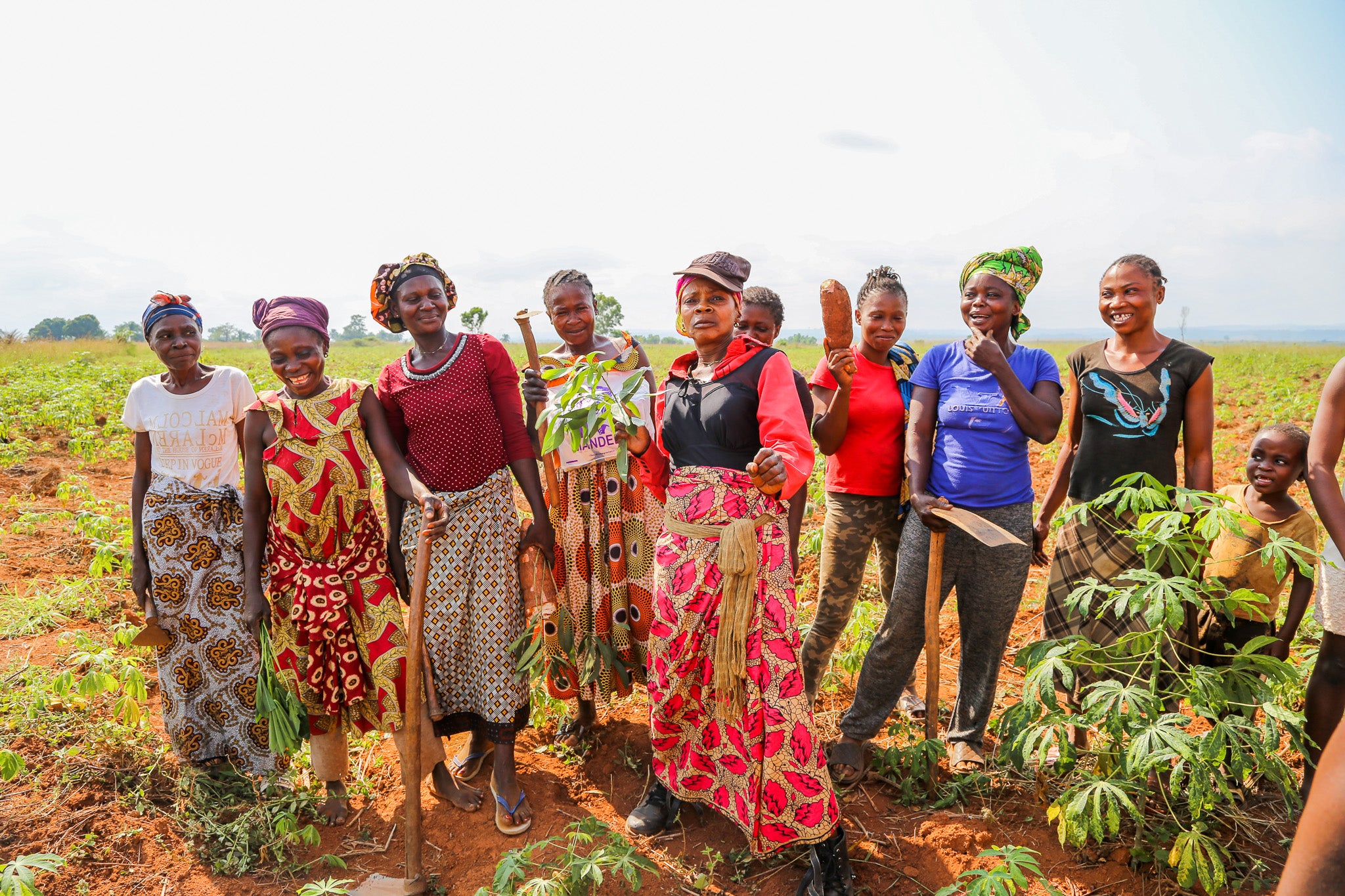
"We produce all types of cassava flour, normal, fermented and bread-making flour". Mme Mamie Basila Kulabuna, Director of Agrikcom, started working with UN Women’s WEE programme in 2020; she currently employs over 200 women in Kuakua. Agrikcom provides the women with training on agricultural product transformation, harvesting techniques and the elimination of violence against women and girls; the UN Women network has allowed Agrikcom to provide workshops beyond the village of Kuakua, expanding gender equality beyond the initial borders of the project. Thanks to the PADMPME project, financed by the Congolese Government through a loan from the World Bank, for which Mme Mamie was a commended entrepreneur, Agrikcom has been able to buy machinery to facilitate and speed up the flour-making process. Nonetheless, the challenges are broad.
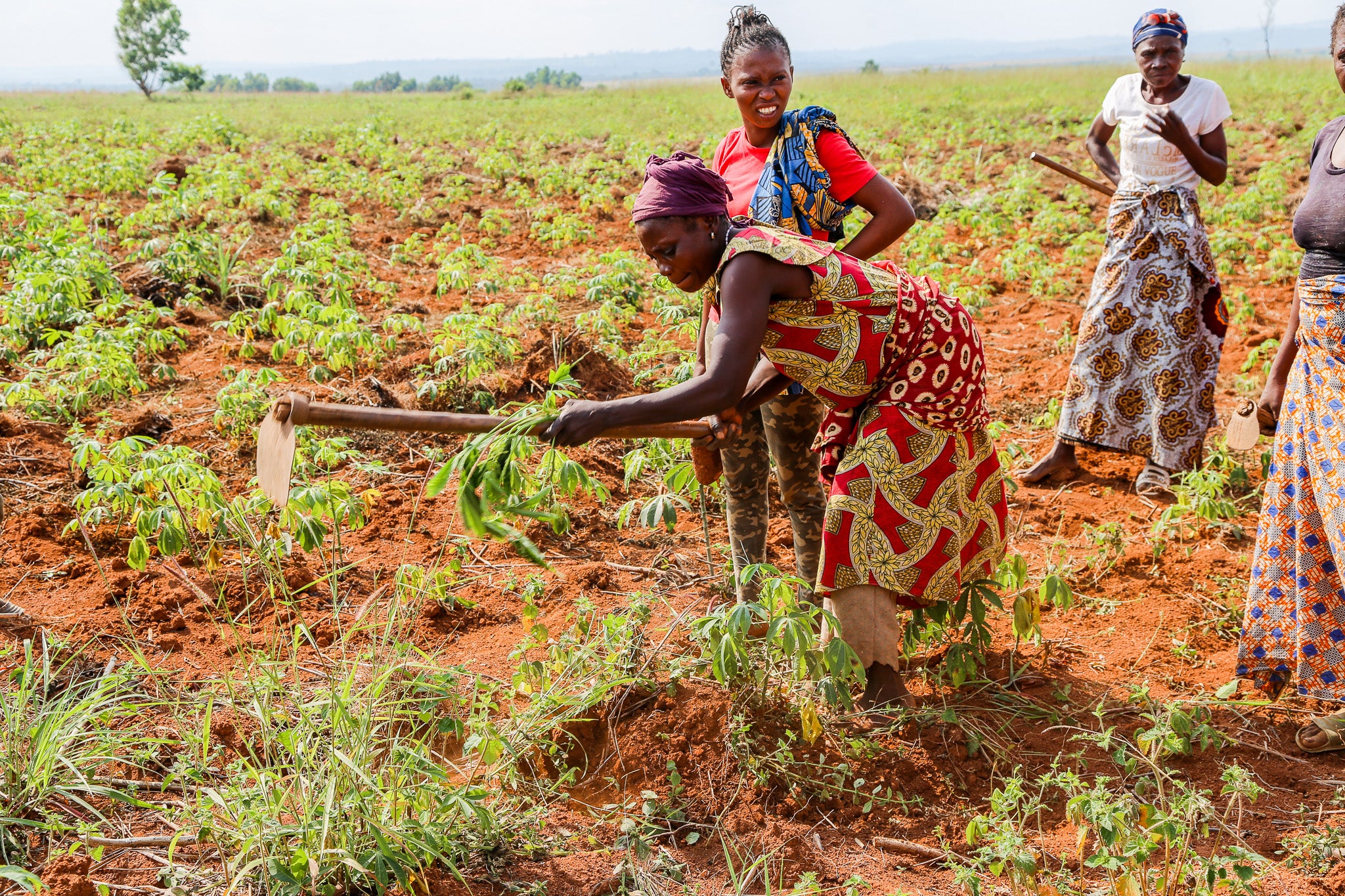
"The struggles sometimes are rape, sometimes we try to flee but get caught in the fields by the rapists…that is why we choose to go to the rural fields in villages, because we are scared to get raped" shared Mme Nzuzi, a vegetable farmer of Kuakua. Until recently, the women vegetable farmers of Kuakua would work in a steep field in the area before Boma, where they suffered from constant rape, harassment and even murder. In order to have the men clean the fields for them, so they could harvest, they were raped by the owners of the plots: "I had to pay with sexual favours in exchange for services in the fields due to poverty", explained Mme Mbwanga, who has 4 children from 4 different men. Facing this horrendous situation, Agrikcom started clearing the land for the women; yet, this was not enough to stop the rape cases during early hours of the morning, and late at night while walking back to the village; ‘when we go in groups they don’t rape us, but if someone goes alone then they get raped’ expressed Mme Nzunzi.
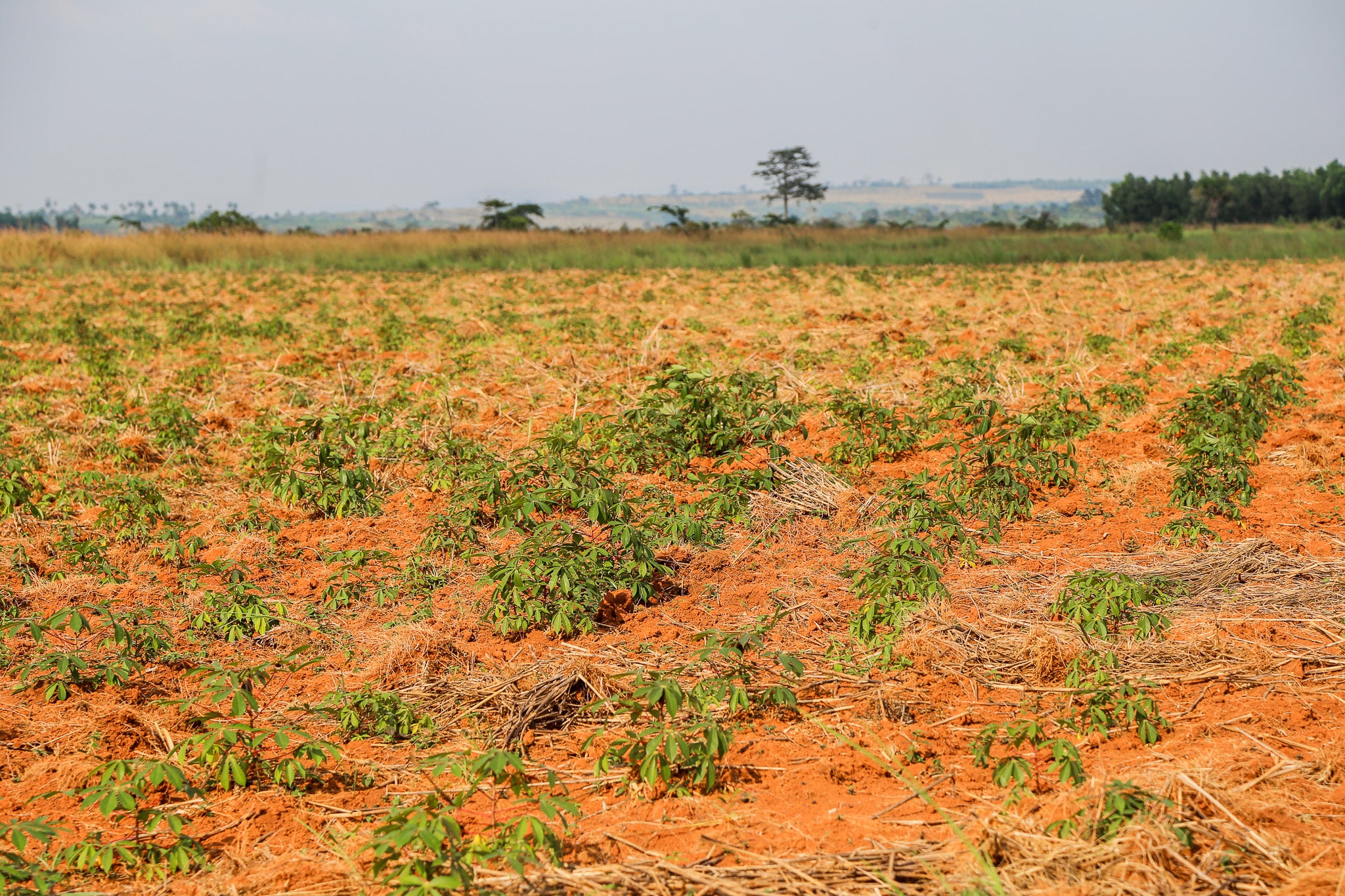
To put a stop to this atrocities, Agrikcom has recently purchased 50 hectares of land right next to the village of Kuakua, so the women no longer need to walk long distances on their own at unfavourable hours. "Now, we report rapists", stated Mme Womba when asked about the benefits of receiving training on VSBG. The closeness to the village, and the fact the plot is flat, with no hidden spaces, has significantly improved their safety. Next to this plot, the village has new machinery to help them produce cassava flour a lot more efficiently, as well as a pigsty and a goat shed. Women no longer work on their own, as men take charge of different stages of the production of the flour, as well as different tasks in the farm.
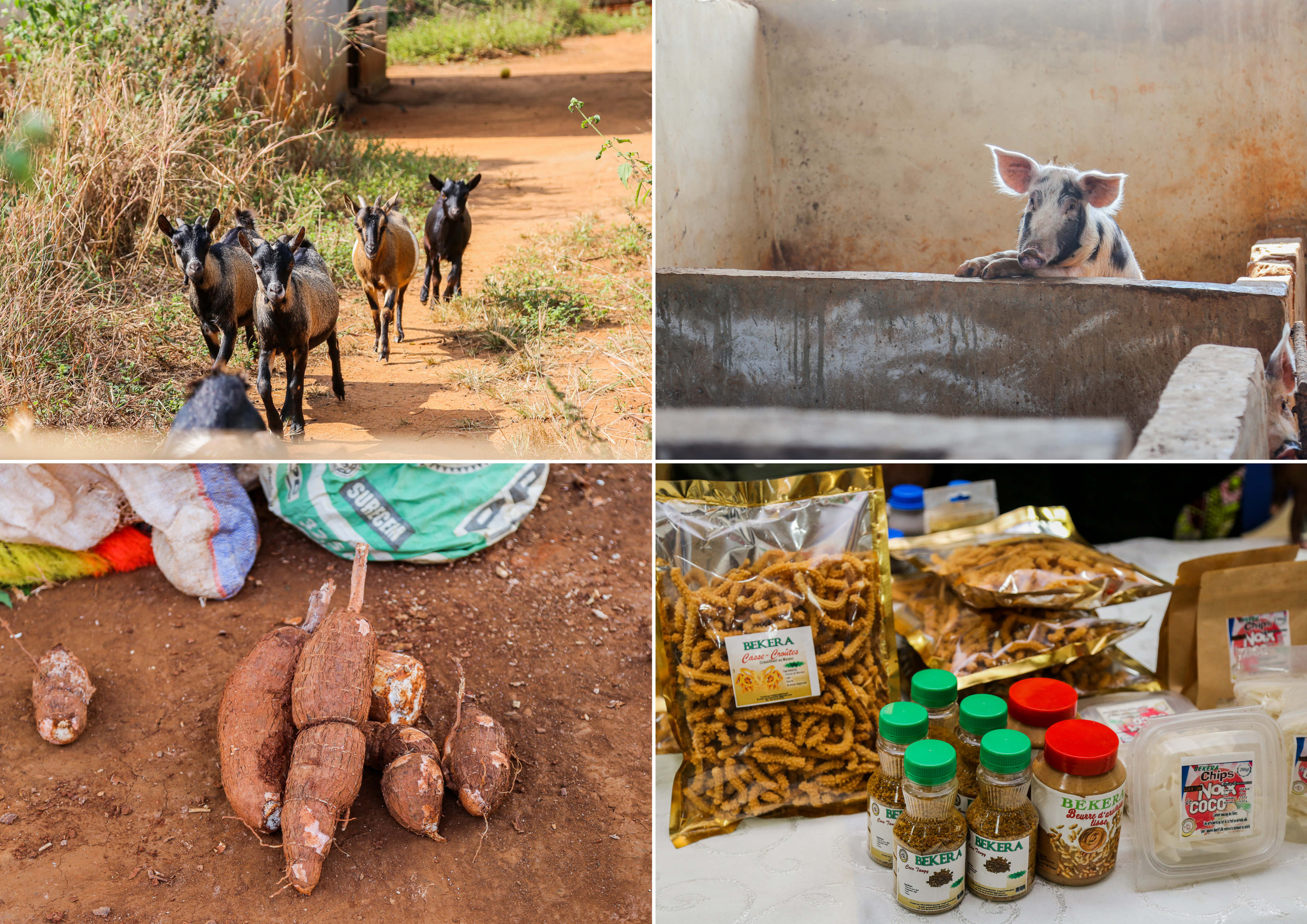
"Before we start processing the cassava , we harvest it first. Then we take it to our processing center, where we start by sorting. We remove the bad roots, we keep the good ones and then we clean them well before peeling them to have a product with good whiteness. Immediately we clean them again for the second time before it can go through the grater."
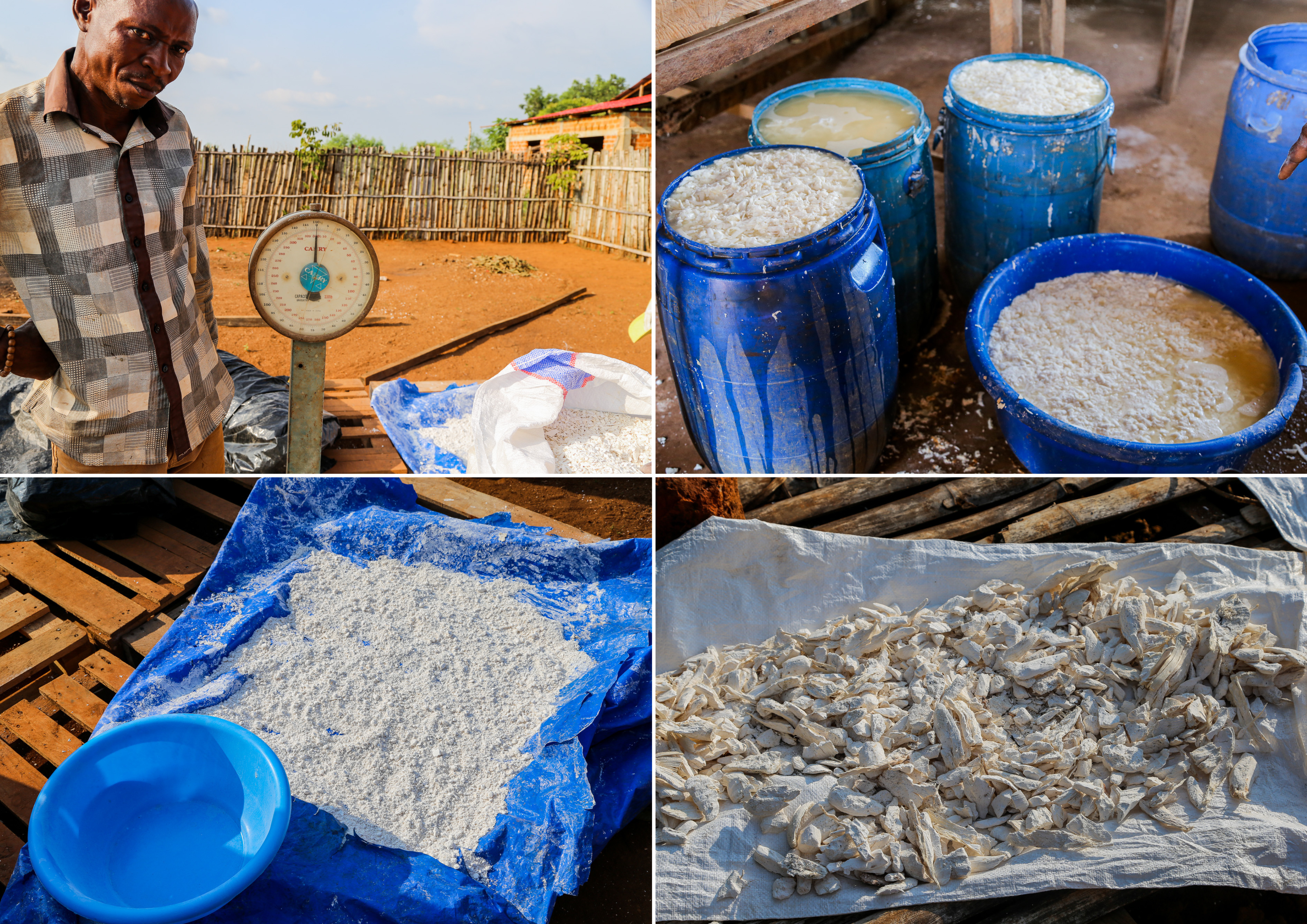
"As soon as they are grated, it now goes to retting. For fermented cassava, it must be fermented for at least three days; on the fourth day we put it in bags and it goes through the press. The press helps us to drain and eliminate all the water. It also makes drying easier. For cassava bread flour, fermentation is not done. There is harvesting, sorting, cleaning, clearing and then we seal that directly. After the 'chipping’ it goes through the press. Finally, it is grounded.
Our grating machine can either grate or chip up to three tons of cassava per day. This machine gives us what are called ‘micro-cossettes’. There are a lot of advantages because it is an easily obtainable product and it dries easily, it takes 48 hours for bags to dry. Even before drying the cassava, with the scale, you can know how many kilos of flour you will have at the end. From 100% grated cassava, we remove 15% which is splices, which we give as food to livestock. Nothing is wasted here. The remaining 85% will weigh only 30% of the original weight when dried. I hope that soon we will have our flash dryer thanks to the prize I obtained through the PADMPME project financed by the World Bank. This will allow us to dry 350 kilos of flour per hour. It will really lighten the workload."
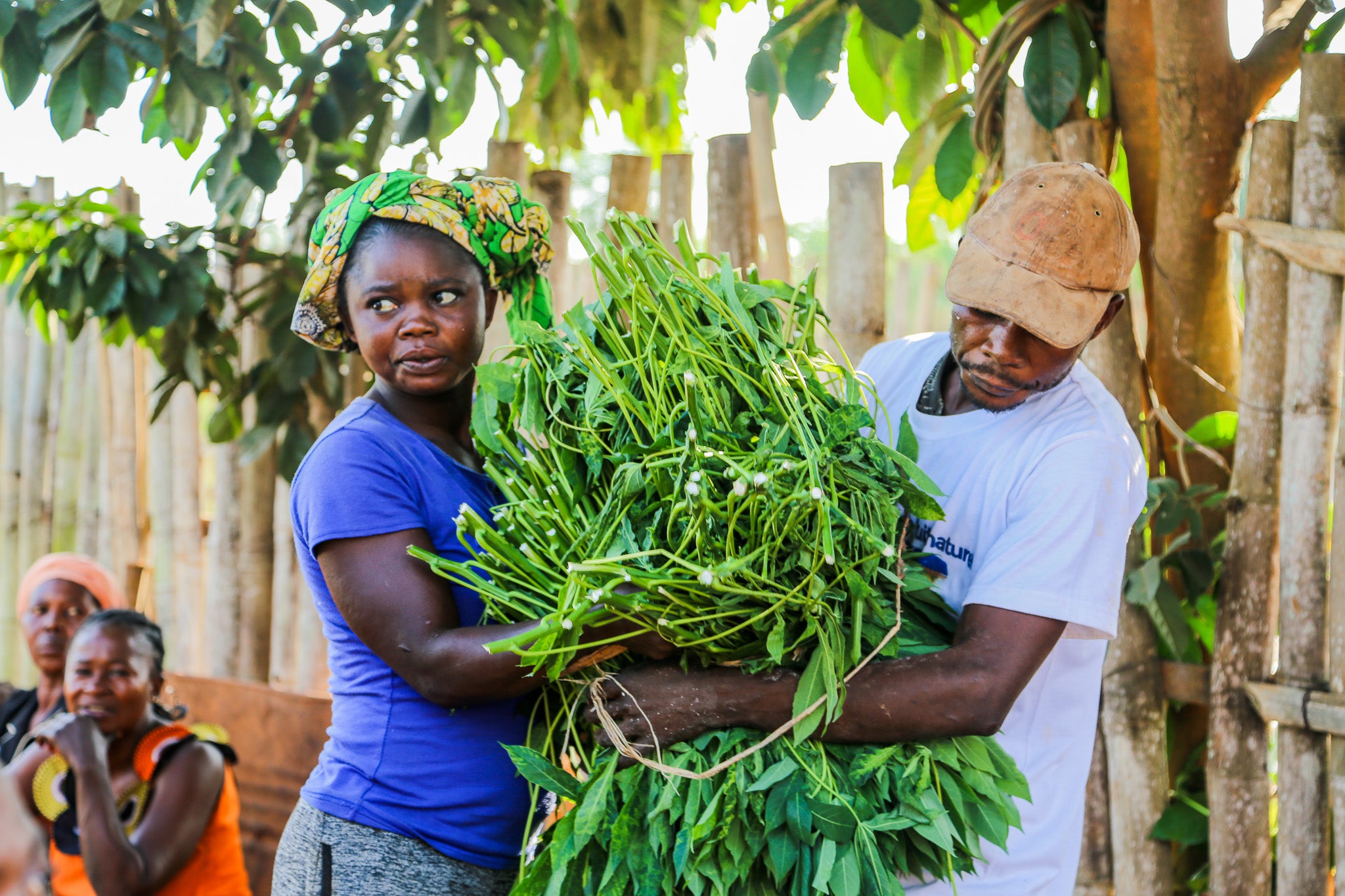
"With us everything is gendered, men and women of the village work together. The women do the pleating and harvesting with the men. The men help the women with the harvest, and the fermentation is also done by men and women."
Nevertheless, in spite of the progress, the women of Kuakua are yet not free from sexual violence. "Sometimes we don’t have time to rest (when we are back from work), we are expected to sleep with our men" said Mme Nzunzi. "If you don’t respect the mother of your kids, people can’t respect her. You must respect" advocated Mme Womba.
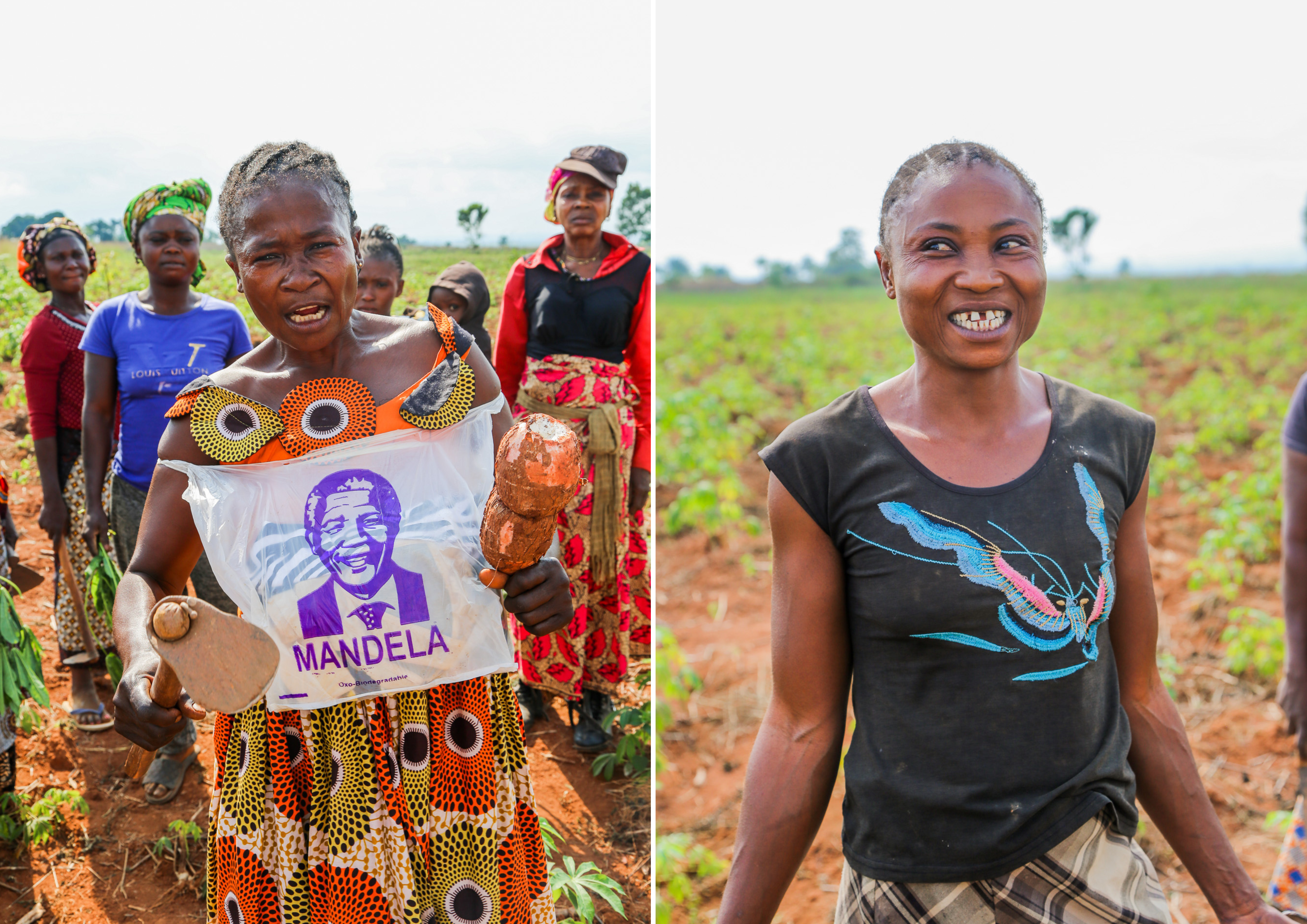
Equally, economic difficulty is still a prominent force in their lives: "sometimes we give our agricultural products to the kids so they don’t starve, sometimes the kid might even be able to sell them to others" added Mme Womba, "but we send them to school even if it’s difficult" mentioned Mme Nzunzi.
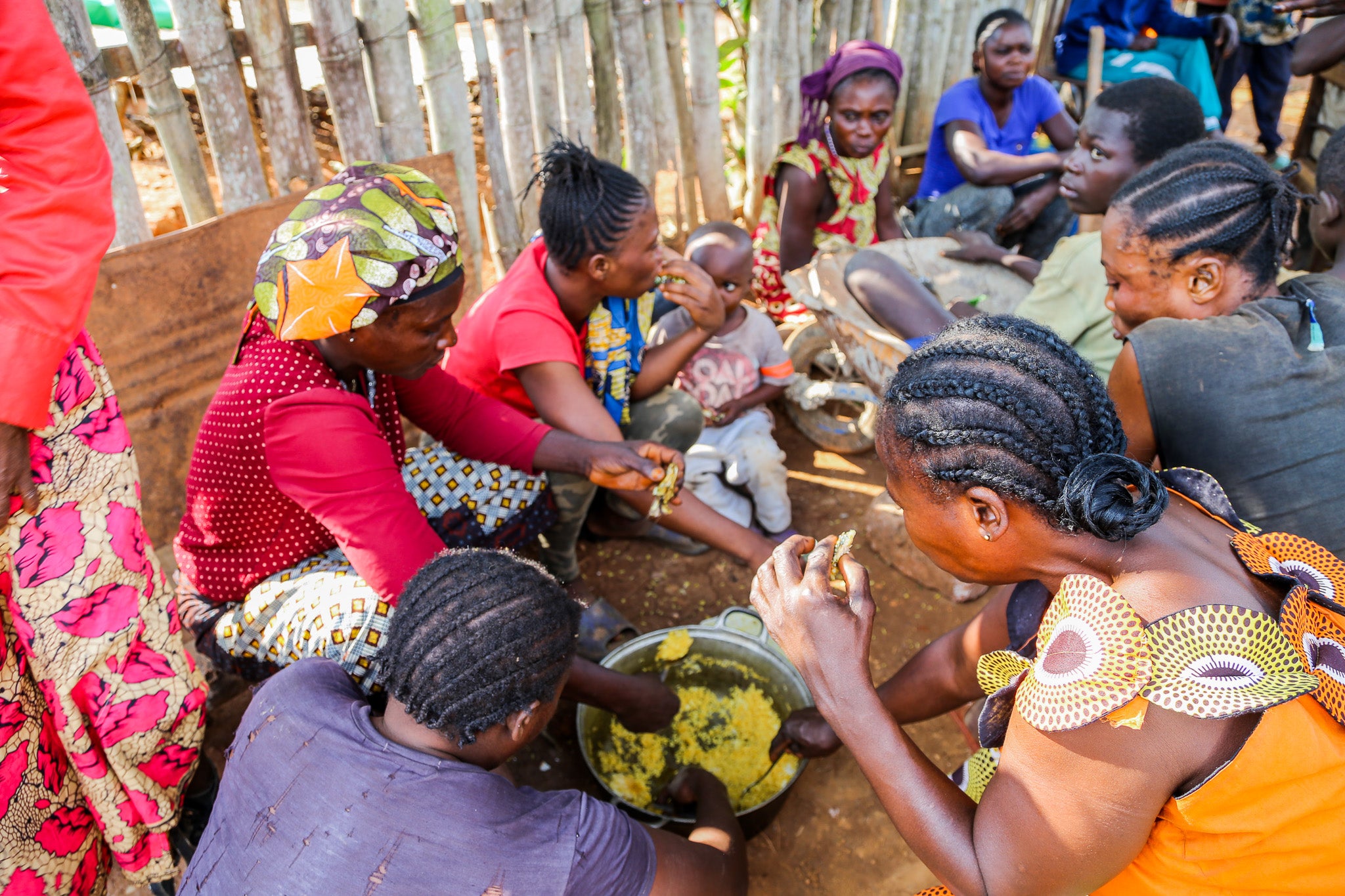
UN Women’s WEE programme, as well as the PADMPME project financed by the Congolese Government through a loan from the World Bank, have played a key role in helping the women of Kuakua achieve their independence, ambitions and community. Nevertheless, there is still a long way to ensure gender equality and economic empowerment to its fullest, a mission UN Women is devoted to.